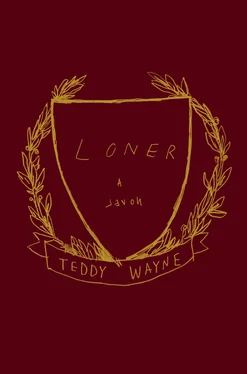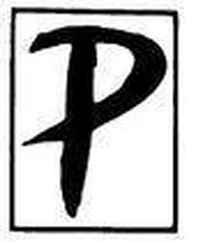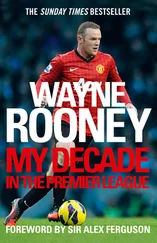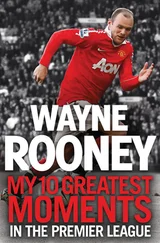Man can indeed do what he wants, but he cannot will what he wants.
— Arthur Schopenhauer, Essay on the Freedom of the Will
“After I go out this door, I may only exist in the minds of all my acquaintances,” he said. “I may be an orange peel.”
— J. D. Salinger, “Teddy”
David,” my mother said, “we’re here.”
I sat up straight as we passed through the main gate of Harvard Yard in a caravan of unassuming vehicles, rooftops glaring under the noonday sun. Police officers conducted the stammering traffic along the designated route. Freshmen and parents lugged suitcases and boxes heaped with bedding, posing for photos before the redbrick dormitories with the shameless glee of tourists. A pair of lanky boys sailed a Frisbee over the late-summer grass in lazy, slanted parabolas. Amid welcome signs from the administration, student banners interjected END ECONOMIC INEQUALITY, SILENCE IS VIOLENCE, and YALE = SAFETY SCHOOL.
A timpani concerto pounded in my chest as we made landfall upon the hallowed ground that had been locked in my sights for years. We’d arrived. I’d arrived.
“For the tuition we’re paying,” my father said, carefully reversing into a spot, “you’d think they could give us more than twenty minutes to park.”
My parents climbed out of the car and circled around to the popped trunk. After tugging in vain at my door handle, I tapped on the window. “Where’d he go?” I could hear my mother ask.
“In here,” I shouted, knocking louder.
“Sorry, thought you got out,” my father said following my liberation. I checked in under a white tent teeming with my new classmates and received my room key and a bulky orientation packet. As we approached Matthews Hall, a girl emerged from the building. Seeing our hands were full, she paused to hold the door. I stepped inside and my orientation packet slid off the top of the box in my arms.
“Thanks,” I said when she stooped down to get it.
“You would’ve been completely disoriented,” said the girl, smiling, her nose streaked with contrails of unabsorbed sunscreen.
“She seems nice,” my mother said encouragingly as we shuffled upstairs to the fourth floor. The doors were marked with signs listing the occupants and their hometowns, stamped with Harvard’s Veritas shield. Beneath these were rosters of previous inhabitants, surname first. My room’s read like an evolutionary time line of American democracy, beginning with a procession of gilded Boston Brahmins, gradually incorporating a few Catholics, then Goldbergs and Jacksons and Yangs and Guptas, and, in the 1970s, Karens and Marys and Patricias. My mother was impressed to discover an NPR correspondent on the list (I’d never heard of her). In fifty years, I thought, I’d humbly recall this moment in career-retrospective interviews, insisting that never in my wildest dreams did I imagine my name would someday be the one people noticed.
For the time being, though, I knew it didn’t quite emblazon itself across the heavens like a verbal comet. David: blandly all-purpose, a three-pack of white cotton undershirts ( CREWNECK, MEDIUM); Alan, an ulcerous accountant in Westchester circa 1957; then Federman, long a sound for the first vowel, an entity who is hardly here, or maybe he just left— Wait, who were we talking about, again? It was as if my parents, upon filling out my birth certificate, couldn’t be bothered. Tap is fine, they always told waiters.
But now my ID card read David Alan Federman, Harvard Student .
My roommate, Steven Zenger, had yet to arrive. I claimed the front room, envisioning it would lead to impromptu visitors, a revolving door of campus characters popping in, lounging on my bed, gossiping late into the night.
My parents took my student card and fetched the remaining stuff as I unpacked. After setting down the final box, my lawyer father checked his watch. “Thirteen minutes,” he announced, pleased with himself.
“Seven minutes to spare,” my mother, also a lawyer, chimed in.
Through the door the hallway hummed with the chatter of other families.
“Well,” said my mother, surveying the room. “This is exciting. I wish I were starting college again. All the interesting courses and people.”
“And I bet you’ll be beating the girls off with a stick,” my father added. “There are a lot of late bloomers here.”
My mother scowled. “Why would you say something like that?”
“I’m just saying he’ll find his tribe.” He turned to me. “You’ll have a great time here,” he said with the hollow brightness of an appliance manual congratulating you on your purchase.
“Just be yourself,” my mother advised. “You can’t go wrong being yourself.”
“Yep.” Sensing more imperatives and prophecies, I opened the door to let them out.
“Just one little thing, David,” she said, raising a finger. “Sometimes when you talk, you do this thing where you swallow your words. I did it when I was younger, too. I think it comes from a place of feeling like what you say doesn’t matter. But it’s not true. People want to hear what you have to say. So try to enunciate.”
I nodded.
“It helped me before I spoke to think of the word ‘crisp,’ ” she said. “Just that word: crisp .”
After our own swift hug, my mother prodded my father into initiating an avuncular, back-patting clinch. They seem comfortable enough with my sisters, but for as long as I can remember, my parents have acted slightly unnatural around me, radiating the impression of Good Samaritan neighbors who dutifully assumed guardianship following the death of my biological parents in a plane crash.
The door swung shut with a muted click. My bereft mattress and bookcase and motionless rocking chair stared at me like listless zoo animals. It was hard to picture people gathering here for fun, but a minute later someone knocked.
It was my mother.
“Your ID.” She held out my student card. “It’s very important — you can’t open the door without it. Don’t forget it again.”
“I didn’t,” I said. “You guys did.”
I resumed unpacking, yanking the price tags off a few items. Earlier that week my mother had dragged me to the mall, where I’d decided to adhere, for now, to my usual sartorial neutrality of innocuous colors and materials. It would serve me these first few weeks to look as benign as possible, the type of person who could be friends with everyone.
I was standing inside my closet, hanging shirts, when the door flew open and my roommate bounded into the room, his equally enthusiastic parents in tow.
“David!” he said. “Almost didn’t see you. Steven.” He walked over with his arm puppetishly bobbing for me to shake.
“If I look different from my Facebook photo, it’s because I got braces again last week,” he said. “But just for six months. Or five and three-quarters now.”
All hopes I had of a roommate who would help upgrade me to a higher social stratum snagged on the gleaming barnacles of Steven’s orthodontia. He would have fit right in at my cafeteria table at Garret Hobart High (named for New Jersey’s only vice president), where I sat with a miscellaneous coalition of pariahs who had banded together less out of camaraderie than survival instinct. We were studious but not collectively brilliant enough to be nerds, nor sufficiently specialized to be geeks. We might have formed, in aggregate, one thin mustache and a downy archipelago of facial hair. We joked about sex with the vulgar fixation of virgins. We rarely associated outside of school and sheepishly nodded when passing in the halls, aware that each of us somehow reduced the standing of the other — that as a whole we were lesser than the sum of our parts.
Читать дальше












